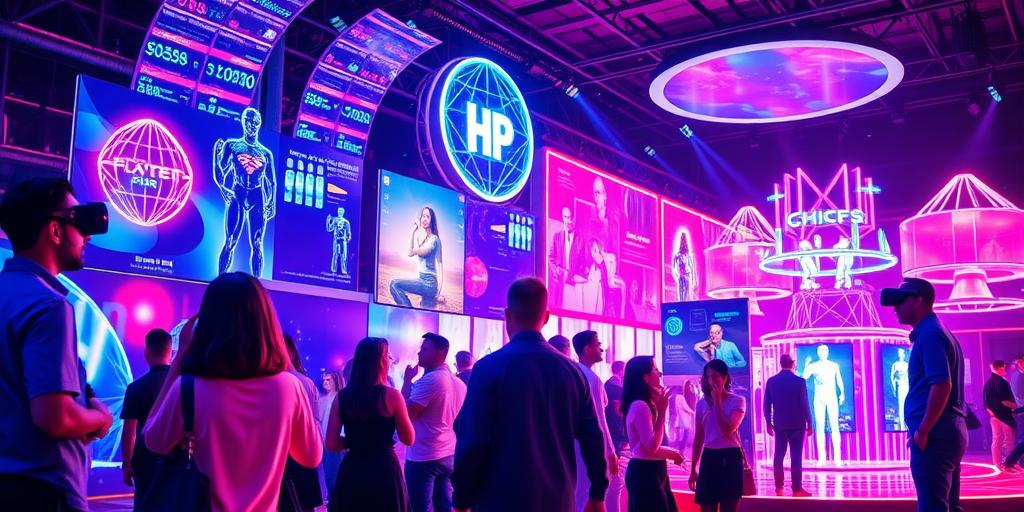Experiential Marketing Trends in 2025 Entertainment
The entertainment industry is in constant flux, driven by technological advancements and evolving consumer preferences. In 2025, experiential marketing will play a pivotal role in captivating audiences and fostering deeper engagement. Let’s explore the key trends shaping this dynamic landscape.
1. Immersive Technologies: Blurring the Lines Between Reality and Fiction
Augmented Reality (AR), Virtual Reality (VR), and Mixed Reality (MR) will continue to revolutionize entertainment experiences. Imagine attending a concert where holographic performers share the stage with live musicians, or stepping into a VR simulation of your favorite movie scene. These technologies offer unparalleled opportunities for creating memorable and interactive encounters.
- AR: Superimposes digital elements onto the real world, enhancing everyday experiences.
- VR: Creates fully immersive digital environments, transporting users to different realities.
- MR: Combines elements of AR and VR, allowing digital and real-world objects to interact.
2. Personalized Storytelling: Tailoring Experiences to Individual Preferences
Data analytics and artificial intelligence (AI) will enable marketers to personalize entertainment experiences like never before. By analyzing audience behavior and preferences, brands can create customized narratives that resonate with individual viewers. Imagine a theme park where ride experiences adapt to your interests, or a streaming service that curates content based on your emotional responses.
3. Interactive Installations: Turning Spectators into Participants
Interactive installations will become increasingly prevalent in entertainment venues, transforming passive spectators into active participants. These installations encourage audiences to engage with the content physically and emotionally, fostering a sense of ownership and connection. Think of large-scale digital canvases that respond to touch, or collaborative art projects that evolve with audience input.
4. Gamification: Adding a Layer of Challenge and Reward
Gamification techniques will be used to enhance entertainment experiences by adding a layer of challenge and reward. By incorporating game mechanics such as points, badges, and leaderboards, brands can motivate audiences to engage more deeply with the content. Imagine a museum exhibit where you earn points for discovering hidden facts, or a concert where you unlock exclusive content by participating in social media challenges.
5. Hybrid Events: Combining the Best of Both Worlds
Hybrid events, which blend in-person and virtual experiences, will become increasingly common. These events offer the flexibility to reach a wider audience while still providing opportunities for face-to-face interaction. Imagine a film festival that features both physical screenings and virtual Q&A sessions with filmmakers, or a music festival that streams live performances to viewers around the world.
6. Sustainability: Eco-Conscious Entertainment
With growing environmental awareness, sustainability will become a crucial consideration in entertainment. Eco-friendly practices will be increasingly adopted, and audiences will expect brands to minimize their environmental impact. This includes utilizing renewable energy sources, reducing waste, and promoting responsible consumption.
7. The Rise of the Metaverse
The metaverse, a persistent, shared virtual world, is poised to revolutionize entertainment. In the metaverse, users can interact with each other, explore virtual environments, and participate in a wide range of activities. Brands will leverage the metaverse to create immersive experiences, virtual events, and new forms of entertainment.
Conclusion
Experiential marketing in the entertainment industry is set for an exciting transformation. By embracing immersive technologies, personalized storytelling, interactive installations, gamification, hybrid events, sustainability, and the metaverse, brands can create unforgettable experiences that resonate with audiences and drive lasting engagement. As we move closer to 2025, these trends will continue to shape the future of entertainment.
